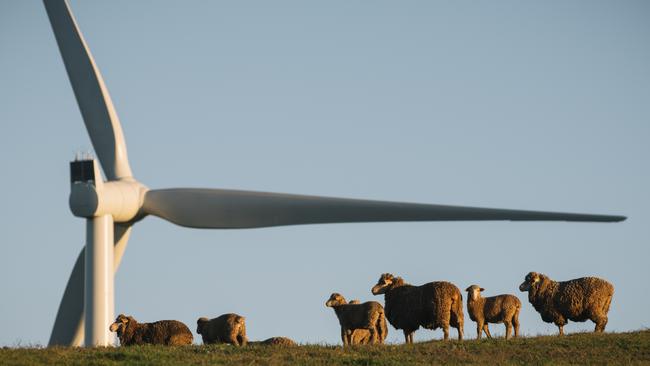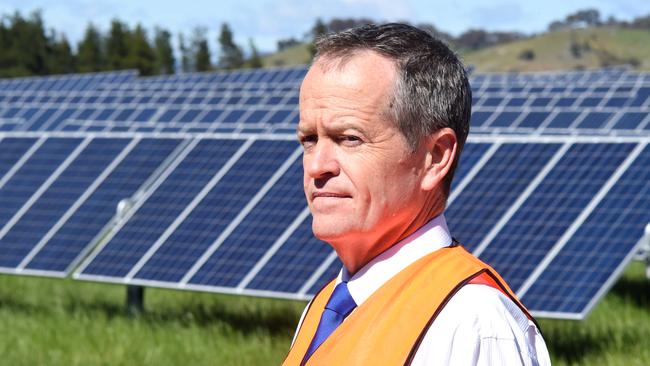
There are few people in the world better able to assess the mood of the international community than Guterres.
In Australia, if the opinion polls are right, Bill Shorten will be prime minister after Saturday’s election and one of the driving forces behind that victory—particularly among younger voters -- will be his plan to accelerate carbon reduction in Australia by investing in renewables.
So, we are moving in a direction that is different to large parts of the international community.
That raises clear trade warning bells but, for the moment, let’s leave that aside. Around 2016 the rest of the world was like Australia today, with large segments of the population driving for lower carbon emissions via renewables.
Australia and a Shorten government needs to take note of the Guterres warning and learn from the mistakes countries have made which have turned big segments of their populations against renewables-driven carbon reduction, despite the climate warnings.
In summary the populations were told renewables would reduce prices. That’s simply wrong unless you plan the introduction with great care, rather than plonking windmills or solar panels around the land with no co-ordination with existing installations and networks.
The first thing that does is to put pressure of the power grid and I described the problem last month.
But it’s an area where international global power experts can inadvertently mislead and in that commentary I described how problems in the grid can affect the charging of electric car batteries (in this case Tesla) in Australia. I later discovered the expert was talking about the US. I apologise for that mistake, but the message is the same--- whatever changes you make in power generation or usage, make sure the grid in all areas can handle it. If you don’t then the unreliability created will turn the community against carbon reduction and may lead to bizarre outcomes.
In Europe, power utilities can receive carbon credits by switching from coal to wood and belching out far more carbon than modern coal burning.
It’s an obscene racket and I have discovered there are a vast variety of estimates as to how big it is.

But there is also good news on the carbon front. Back in 2016 the only way to adjust the grid for renewables and other changes was to spend large sums on new wires. Now there are low-cost technologies to stabilise the grid and expand its capacity, which is fantastic news for electric cars.
I described the Faraday Grid system last month and an early step of an ALP government should be to assess the rollout of the Faraday system in London and Tokyo and check whether there are any rival systems. That way we can avoid at least one of the traps that changed the renewable views of other countries.
We should also be aware that, in Europe at least, economic difficulties can play a role in changing views.
We have not encountered anything like the problems of many European countries but as I explained yesterday, a prolonged US-China trade war at the same time as an Australian credit squeeze, a retirement and pensioners tax, and negative gearing clamps, will create a severe downturn which may cause Australia to embrace the same renewable energy views as many other countries.
We have already seen how tough times in northern Queensland have made parts of the local population strongly in favour of coal mining.
Some years ago, Germans were enthusiastic about their “Energiewende” energy transition project that involved the erection of vast numbers of windmills and solar panels. But it turned into an extremely costly debacle causing higher power prices, blackouts and load sharing. And it also changed the idyllic rural landscapes. ‘Energiewende’ is now winding back and is an excellent example of the new community attitudes described by the UN Secretary-General.
In the UK the renewables have forced gas-fired power stations to suddenly boost their output and then reduce it in order to balance the grid and prevent blackouts.
In addition, few are investing in efficient modern gas-fired plant while renewables are subsidised. The result is that the gas-fired fleet is much less efficient than it should be and price rises will continue for the foreseeable future.
That’s what will happen in Australia if we don’t integrate renewables with the existing systems.
Just as new technologies solved the grid problems, the world is working on much better non-carbon energy production other than wind (including more efficient solar) and is developing better batteries to change the economics of wind.
We are in danger rushing into technologies that will be obsolete while Europe and other areas fudge their figures by burning wood.



UN Secretary-General Antonio Guterres has told the world that the political will to fight climate change has faded and that many countries are not living up to their commitments under the 2016 Paris agreement.